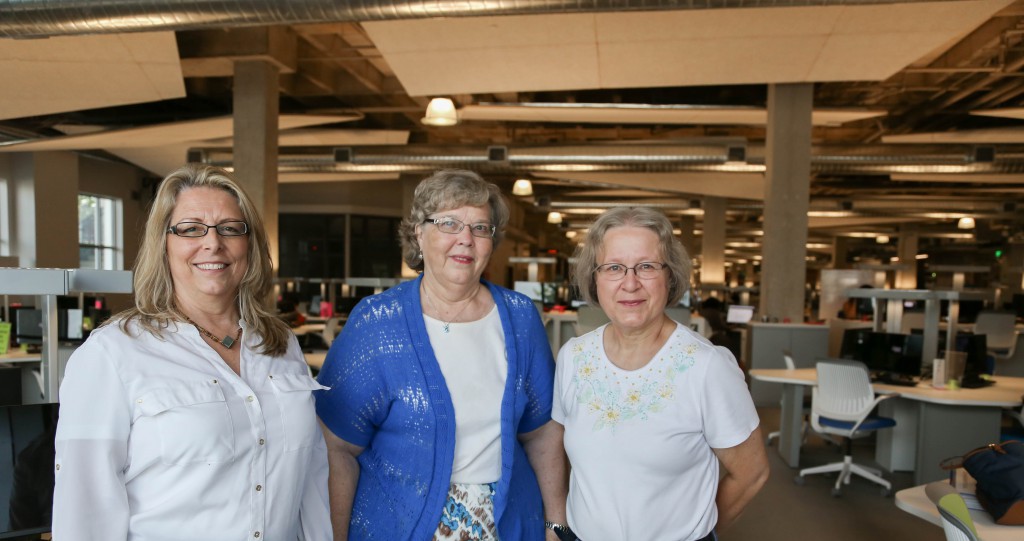As Austin Community College expands its competency-based learning options for students, enrollment and success rates in the highly flexible courses continue to grow.
“The students love the competency-based, hands-on approach to learning, especially the older students who can connect their life experience to the concepts they’re learning,” says Dr. Alice Sessions, assistant dean at Highland Campus who leads a project to develop competency-based initiatives for the Biology Department.

ACC leaders helping to launch competency-based education include Linda Smarzik, dean of computer studies & advanced technology, Mary Kohls, chair of computer information technology/computer science, and Dr. Alice Sessions, assistant dean at Highland Campus.
Students in competency-based courses advance individually as they master specific learning outcomes, or competencies. Curriculum typically is organized in modules, making it easier for students to advance through learning outcomes at a pace that suits their abilities and schedule.
In 2012, the U.S. Labor Department awarded ACC more than $4.5 million to create competency-based learning models for computer programming, biotechnology, and biology.
“Because of our grant-supported initiatives, we’re ahead of a lot of institutions,” says Mike Midgley, vice president of instruction.
ACC currently offers 42 competency-based courses in Computer Information Technology, three in biology, and one for developmental math—the increasingly popular ACCelerator math course (MATD 0421) offered at the Highland Campus.
The competency-based courses in Computer Information Technology are offered through ACC’s Accelerated Programmer Training (APT). During the past year, 55 students earned a degree or certificate through APT, a 50 percent increase in the completion rate for Computer Information Technology/Computer Science students. In fall 2014, 89 percent of program graduates either found jobs or were continuing their education.
Meanwhile, almost 750 students have taken ACC’s redesigned biology courses since fall 2013, with pass rates increasing from 74 percent in traditional courses to 88 percent in the competency-based versions.
The competency-based course receiving the most attention, however, is MATD 0421, which covers all three levels of developmental math curriculum. After one semester, most students completed the equivalent of one traditional course level, while 44 percent completed the equivalent of one and one half courses. The withdrawal rate─just over 10 percent─was less than half the withdrawal rate for traditional developmental courses.
ACC plans to use competency-based programs to help more students gain career-technical credentials quickly. Two new programs, IT Career Academy for dual-credit students and Career Expressways for unemployed and underemployed students, launch this fall through partnerships with area high schools and Capital IDEA, respectively.
Tags: ACCelerator, competency based education
Back to Top


By Ann Dougherty August 18, 2015 - 7:20 pm
Where can I learn more about the Competency-based program “Career Expressway?”
Thank you
By Sam Greer PhD August 20, 2015 - 3:49 pm
Hi Ann,
Thanks for your interest. Please feel free to contact me about ACC’s Career Expressway program: [email protected].
By Ann Dougherty August 20, 2015 - 10:55 pm
Do you have any brochures or catalogs that list the courses offered & the time frame. I am currently unemployed & trying to determine what classes i might need to take to get a certificate in office administration or administrative assistant.